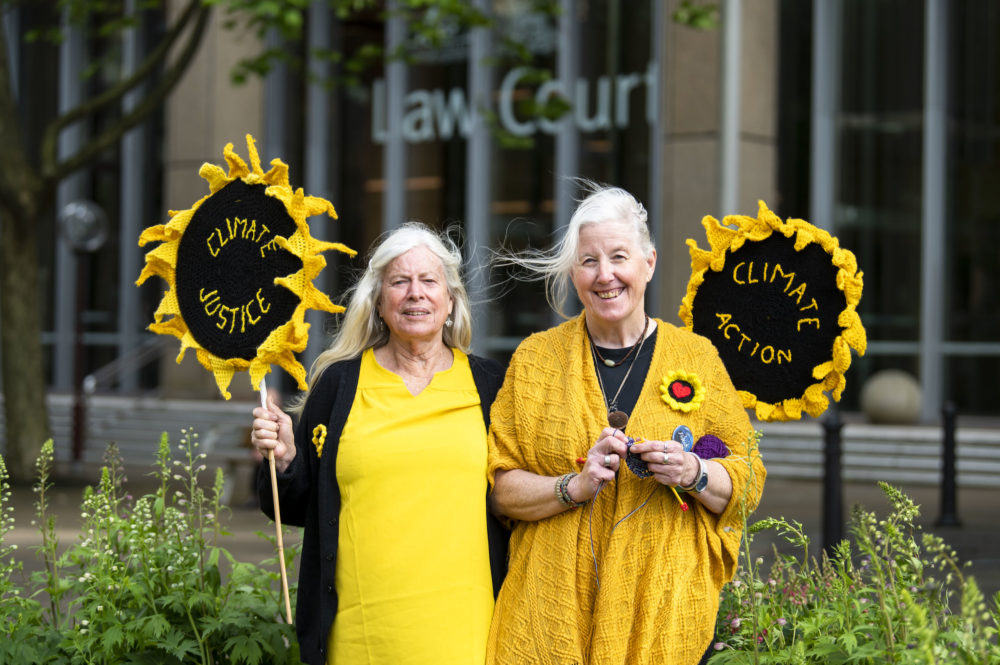Today, two women from the flood and fire-impacted NSW mid-north coast launched a Constitutional challenge to new anti-protest laws to preserve the democratic freedoms of speech and assembly in NSW.
Earlier this year, the NSW Government rushed through amendments to our protest laws without public consultation.
The new laws are so broad that a group of people could face serious criminal charges simply by protesting near a railway station and causing people to be redirected around them.
They mean peaceful protesters could be fined tens of thousands of dollars or face up to two years in jail.
“As mothers, wildlife carers and Knitting Nannas who use our freedom to protest to push for climate action while floods and bushfires destroy our communities around us, this attack on our democratic freedoms is a slap in the face,” Plaintiff, Knitting Nanna, mother and wildlife carer Dominique said.
“We will ask the Court to find that aspects of these new laws are unconstitutional. Australians like us shouldn’t have to risk imprisonment or bankruptcy to participate in our democracy, and the Government should not be taking away our democratic freedoms.”
Both Dominique and Helen have been at the frontline of Australian climate impacts, experiencing the devastation, trauma and loss from drought, fires and floods in the last four years alone.
The message from governments and scientists of the world could not be clearer, without immediate action and phasing out of fossil fuels, we will not be able to secure a liveable future.
“We’ve tried everything from sending letters and signing petitions to meeting politicians and still, the Government continues to dismiss climate science and approve new coal and gas projects,” Plaintiff, Knitting Nanna, mother and wildlife carer Helen said.
For these two women protest became an essential form of political expression to sound the alarm about the impacts of climate change.
“Our communities have felt terrified, angry and stressed. Protest can transform those overwhelming feelings into change and action,” Dominique said.
“History has shown that protest is crucial in a robust democracy and contributes towards achieving better outcomes for people, nature and our climate. Australians shouldn’t have to risk these serious criminal sanctions to participate in our shared democracy, through peaceful protest,” EDO CEO David Morris said.
“If successful, this case will aid in the preservation of our democracy. It will see the worst excesses of these new laws struck out. It will provide clarity for all NSW citizens seeking to avail themselves of the democratic freedom to protest.”
Represented by the Environmental Defenders Office, the Constitutional challenge has been filed in the NSW Supreme Court. Dominique and Helen will ask the Supreme Court to declare new sections of the Crimes Act 1900 unconstitutional as they impermissibly burden the implied freedom of political communication of the NSW community.
EDO is proud to represent Dominique and Helen in their Constitutional challenge and continue our work defending the freedoms of climate defenders in the Australia-Pacific.
Grata Fund supports people and communities to hold powerful government and corporate leaders to account and achieve systemic change through the courts. Grata has provided financial backing to remove the barriers of adverse costs to this important piece of public interest litigation.







